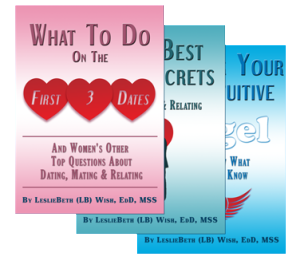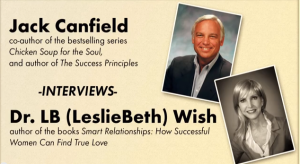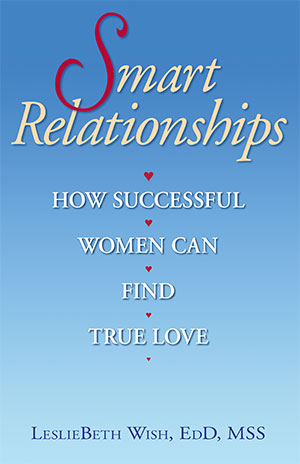 Is there such a thing as a non-sexual affair? My clients and research participants have often asked me this question. Many of these women and men talked about their friendship with someone with whom they could have sexual feelings, and they were surprised when their intimate partner expressed jealousy. “But there isn’t any sex,” the men and women said.
Is there such a thing as a non-sexual affair? My clients and research participants have often asked me this question. Many of these women and men talked about their friendship with someone with whom they could have sexual feelings, and they were surprised when their intimate partner expressed jealousy. “But there isn’t any sex,” the men and women said.
Women often referred to that famous conversation in the movie “When Harry Met Sally” when Harry says that men and women can’t be friends, and that men are always thinking of having sex with just about any woman—even if he feels no physical attraction to her.
Is that true? And is there really anything wrong with having a close friendship with someone who has the potential to become a sexual partner?
Of course, I can’t address every romantic situation, but here is a guide to help you sort out your feelings and questions.
1. Is it cheating if there is no sex?
For most couples, sexual behavior in all its various activities outside the main relationship is the defining factor in cheating. But the absence of sex between a partner and someone other than the mate doesn’t necessarily mean there is nothing to worry about in a relationship.
2. So should I worry if I or my partner is really close to someone else who could become a sexual threat or enticement?
Possibly. This situation has a big “maybe” factor. Most of the time, marriage and cohabitation are the strongest barriers to preventing this outside and close friendship from becoming sexual—and meaningful.
Yet, still, your emotional antenna is aroused. “Am I crazy,” you wonder. And well you should wonder. Here are the main issues to explore.
- On a scale from 1 to 10, with 10 the highest, how would you rate the unhappiness factor in your relationship in one or both of you? Unhappiness comes in many forms. Perhaps one of you is falling out love. Or, perhaps the relationship was rocky to begin with, and things are getting worse. Vulnerable relationships are rich grounds for affairs. How would you rate your relationship’s vulnerability factor?
When relationships are unhappy, they become unstable and anxious. The most common ways that couples mismanage these issues are to have affairs, withdraw emotionally, get overly close to your children, or develop addictions to work, substances, gambling, or shopping and hoarding.
- On a scale from 1 to 10, with 10 the highest, how would you rate the dangerous soup of the following ingredients of your or your partner’s:
Intentions
devil-may-care attitude
emotional hurt
risk-taking level
degree of flirtation
self-lie that time with this person is just not much more than a good friendship
frequency of time with this person?
- On a scale from 1 to 10, with 10 the highest, how would you rate how much you or your partner confide highly personal things—and/or things that you don’t discuss with your mate?
- On a scale from 1 to 10, with 10 the highest, how would you rate the intensity level at work between a colleague and you or your partner? Often, emotionally vulnerable people feel a potent attraction to a colleague when they have been working together on a challenging project. You both feel like you’ve become an invincible team whose strength relies on your incredible union of skills, respect and success—important bonding factors in healthy relationships. The problem is not knowing how you will sustain—or trust—this intensity once the project is finished.
- On a scale from 1 to 10, with 10 the highest, how would you rate the degree of your emotional devastation if aliens came and whisked your lover or overly-close friend away? Think carefully. Usually, your answer reflects the degree of emotional importance of this person to you.
3. What should you or your partner do if this extra-relationship person becomes a threat or deal-breaker to your marriage or union?
If you are the person having a sexual or emotional affair, then don’t act hastily. Seek professional help. The question that almost always comes up is: “Should I tell my partner that my heart—and possibly my body—have gone to someone else?”
There is no one answer that fits everyone. A therapist can be of great help to you with this issue. Take your time. Seek help in assessing the potential for a violent and dangerous reaction from your partner. Even if the partner has never exhibited abusive tendencies, the violation of the relationship can spark deep-seated anger.
This same caution applies to the partner who has uncovered—or strongly suspects—that his or her mate is having an affair.
Think of all those television shows on “Dateline” and “48 Hours: where one spouse or lover murders the mate.
Develop first a safety plan with a therapist who specializes in intimate partner violence and break ups.
Thank you for stopping by. I wish you bravery and the best you! To learn more about me and my research-based, self-help books for women, “Smart Relationships: How Successful Women Can Find True Love” and “The Love Adventures of Almost Smart Cookie,” please go to my website www.lovevictory.com to sign up for a free gift. You can also follow me on https://twitter.com/LeslieBethWish and https://www.facebook.com/lbwishlovevictory?ref=hl
If you would like to help other women, please leave a comment about your story and what you learned. Thank you for stopping by.







